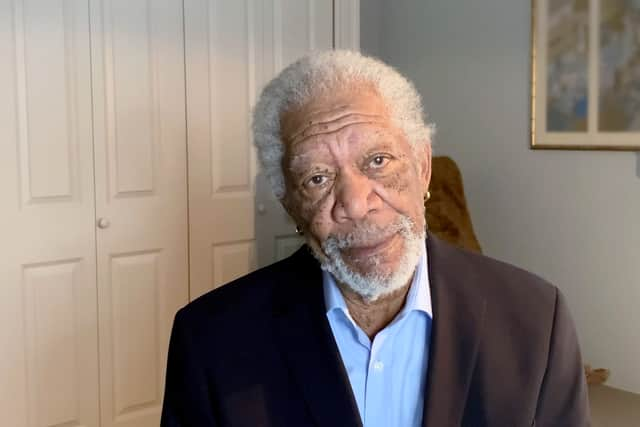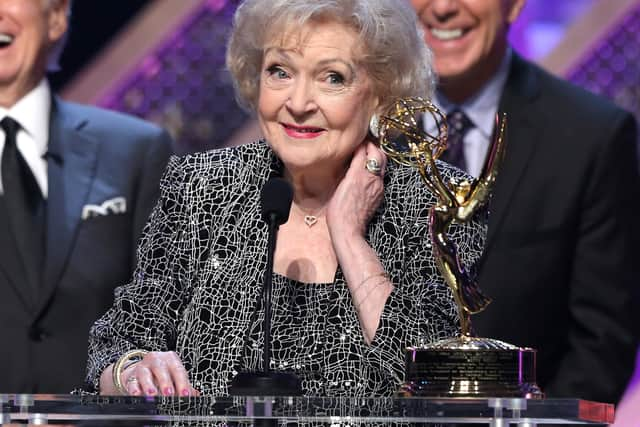Ellen DeGeneres’ online death hoax the most recent in a long line of misinformation fostered online
People in this article
This article contains affiliate links. We may earn a small commission on items purchased through this article, but that does not affect our editorial judgement.
and live on Freeview channel 276
Do not panic, those of you left who are fans of Ellen DeGeneres; she is safe and sound despite rumours surrounding her death. What you have witnessed is another example of how the internet has made the idea of a celebrity death announcement just that little more pertinent in this technological age compared to the word-of-mouth dispersing of gossip from an era where social media didn’t exist.
The rumour surrounding the death of Ellen incredibly comes only a day after ‘The Bachelorette’ star Josh Seiter had to come out and state he was alive and well, and mere weeks before that, there was the controversy surrounding Lil Tay and if she was dead or if she wasn’t. Again, it turned out to be a hoax, but the sheer dedication to the hoax led a number of media outlets to report it as if it was the fact.
Advertisement
Hide AdAdvertisement
Hide AdThe intrigue into how this form of misinformation has managed to become more widespread and at times even more credible looking in part is due to technological advances; I myself am morbidly awaiting a time when someone deepfakes a celebrity death photo and for waves of people online to debate whether the death is legitimate or a hoax. A throwback to when Paul McCartney “died” and the decades-long debate surrounding the clues and nods to the “deceased” member of The Beatles.
"Death by Twitter: Understanding False Death Announcements on Social Media and the Performance of Platform Cultural Capital," a 2019 paper by researchers at the University of Melbourne perhaps sums up the idea of why the death hoax catches on so quickly, and morbidly it would seem that we enjoy the shock and awe of a sudden celebrity death as a jolt to our apparent mundane lives.
“The prevalence of commentary on fake death and digital culture is understandable given false death announcements have become routine enough to be a mundane occurrence, and the gloss of surprise and shock is dulled by suspicion. In another sense, social media commentaries about false deaths may be deployed by users as a way to understand the phenomenon and one's relationship to such forms of social media communication.”
“In this way, social commentary also appears to be used to signal one's identity as a savvy Twitter user familiar with communicative events and cultural tropes in response to them, and in turn used to distance oneself from and critique those fooled by the culture of 'viral performativity' in public mourning. In the delivery of a knowing and ironic engagement, we can see a performative display of personal identity, a disposition that signals to other users one's cultural knowledge and technical authority in recognising the phenomenon and its platform specificity — or what we have called "platform cultural capital".
Advertisement
Hide AdAdvertisement
Hide AdSo it would appear that we are our own worst enemies when it comes to falling at times for those celebrity death hoaxes - such as the ones we’ve taken a look at over time.
Who else has fallen victim to hoax online death announcements?
Morgan Freeman (2012)


In 2012, false reports circulated on the internet claiming that veteran actor Morgan Freeman had died. The hoax alleged that Freeman passed away due to a heart attack. Freeman responded by releasing a short video on his personal YouTube channel titled "Morgan Freeman's Alive."
In the video, he humorously confirmed his own existence and assured fans that he was indeed alive and well, effectively debunking the death rumours.
Eminem (2009)
In 2009, rumours spread across social media platforms claiming that rapper Eminem had died in a car crash. The hoax gained significant traction, causing concern among fans. Eminem responded to the hoax in a unique way by releasing a video clip on his official website where he jokingly expressed his surprise at being alive.
Advertisement
Hide AdAdvertisement
Hide AdThe video showed him reading the fictional news of his own death and then remarking on how strange it was to be watching his own funeral, humorously confirming his continued existence.
Betty White (2014 and 2017)


In both 2014 and 2017, false news reports circulated suggesting that beloved actress Betty White had passed away. The hoax in 2014 claimed she had died peacefully in her home, while the 2017 hoax alleged that she died of a stroke. In response to the 2014 hoax, Betty White's representative reassured the public that she was alive and well.
In 2017, Betty White took to Twitter to address the rumours herself, playfully quipping, "I'm still alive, & I'm doing great!" Her lighthearted response helped put the rumours to rest once again.
Ariana Grande (2014)
In 2014, singer Ariana Grande became the target of a death hoax that falsely claimed she had died in a car accident. The hoax spread across social media, causing alarm among her fans.
Advertisement
Hide AdAdvertisement
Hide AdGrande took to her Twitter account to dispel the rumours, assuring her followers that she was "very much alive" and urging them not to believe everything they read online. Her quick response put an end to the unfounded speculation.
Jeff Goldblum (2009)
In 2009, rumours circulated that actor Jeff Goldblum had died while filming in New Zealand. The hoax claimed that he fell from a cliff while working on a movie set. Goldblum's representatives promptly denied the reports, stating that he was alive and well.
Goldblum later appeared on "The Colbert Report" to humorously confirm his existence by saying, "I'm here, I'm alive, I'm here alive and well, and I'm here to confirm it."
Comment Guidelines
National World encourages reader discussion on our stories. User feedback, insights and back-and-forth exchanges add a rich layer of context to reporting. Please review our Community Guidelines before commenting.
